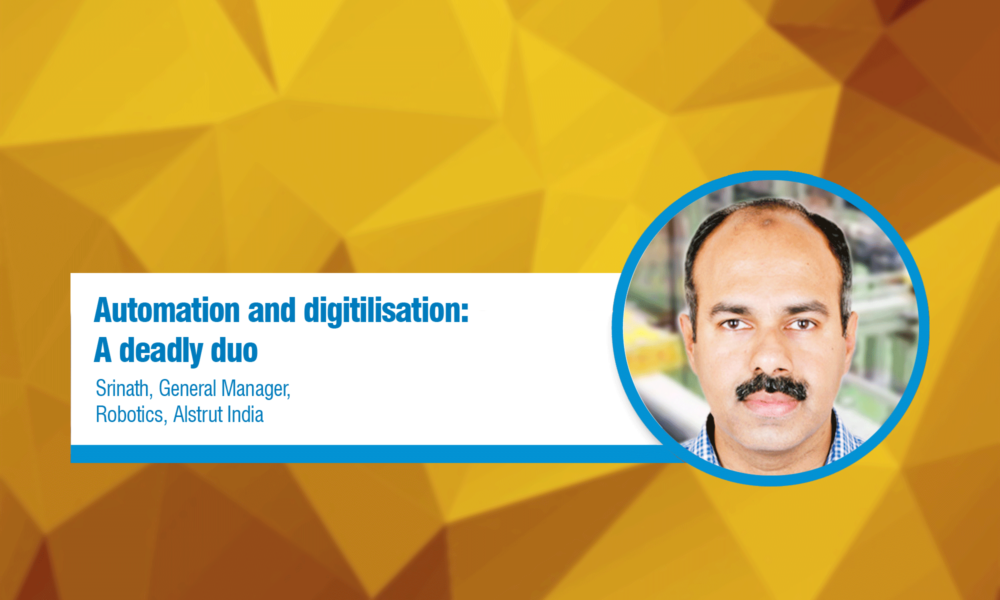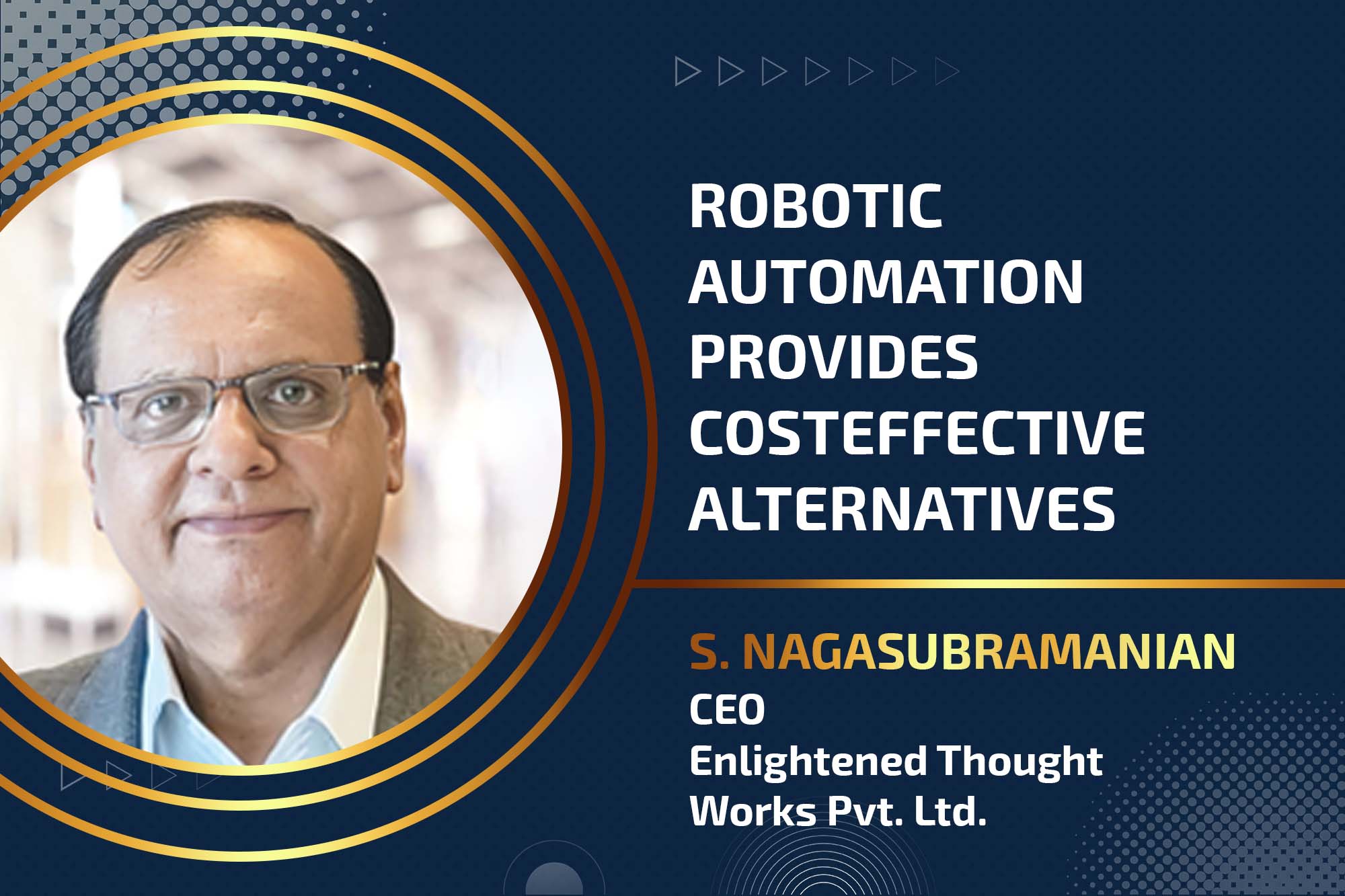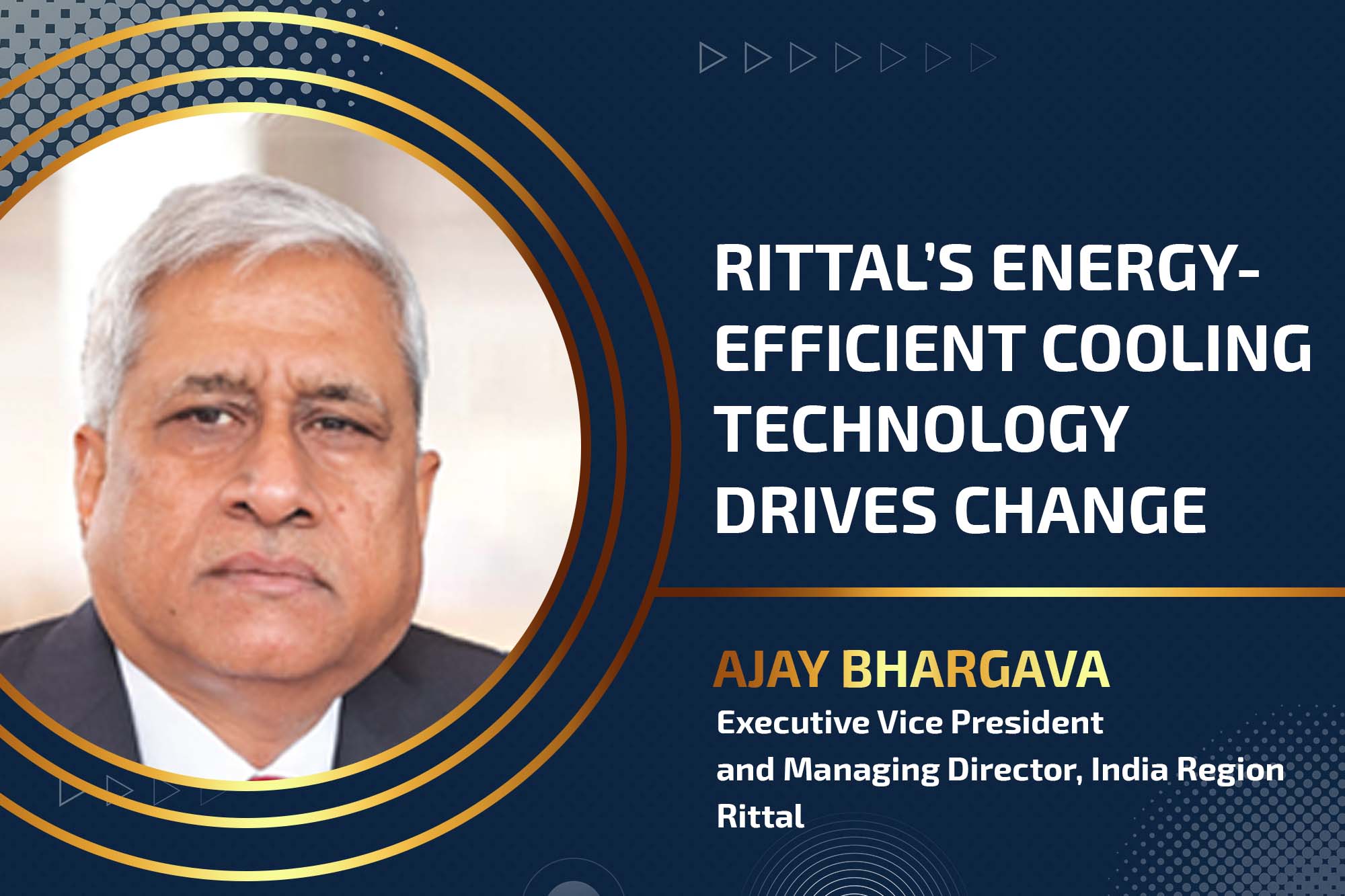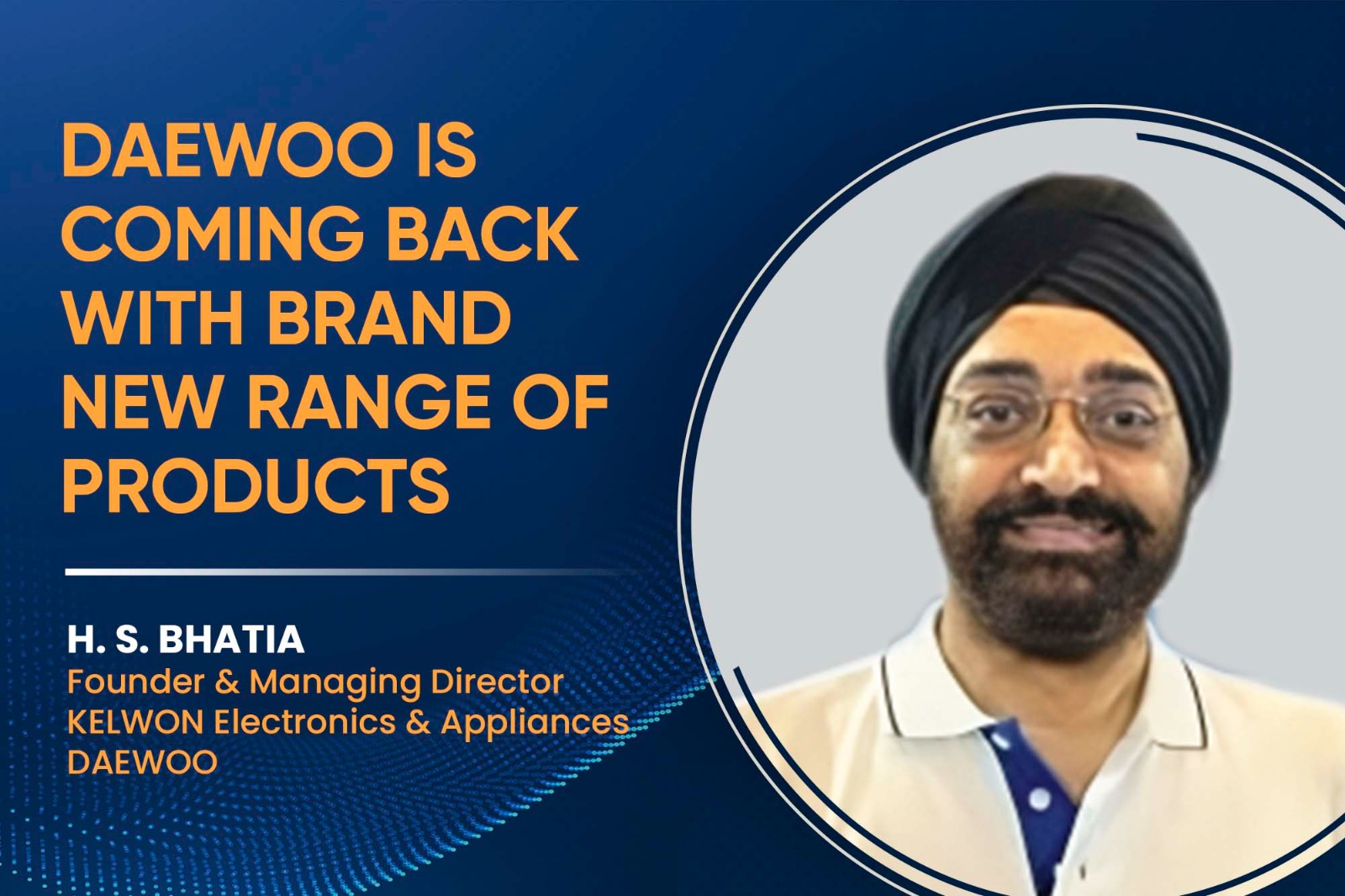Automation and digitilisation: A deadly duo
By OEM Update Editorial December 16, 2019 12:10 pm IST
There is a need for more shorter cycles of changes in packaging which means that you need flexibility and being able to handle those variations that’s what robotics bring in.
Srinath, General Manager, Robotics, Alstrut India, discusses how Regulatory requirements will drive the need to be consistent and focused. Also, how automation and digitalisation is improving work for all the industries.
Please walk us through Alstrut’s company profile.
We had about 6 exhibits, largely on different applications of collaborative robots. In display are two type of collaborative robots, one is 6-axis Collaborative Robot from Universal Robots and second is Collaborative Autonomous Mobile Robot from Mobile Industrial Robot (MIR), MIR is is an autonomous robot for internal logistics transport . Apart from these, we also have our exhibits our products and solutions such as conveyers, work stations and tables which are made of aluminium profiles.
I would like to emphasise on the new product that we launched, ‘Cobotizur’ which is collaborative palletiser solution based on Collaborative Robots. This was also launched in PackExpo, Las Vegas just the same week as this Expo. The idea of this “Cobotizur is to make a “Plug and Produce” solution for Palletising application that can be easy deployed by any integrator or end user with limited knowledge of the application or the robot programming and can be deployed in an installation in just 5 hours. The USP of this product is to be able to configure different variations that you see in the pallet size, box size and patterns and it is Universal Robot Certified. My favourite statement for Alstrut is that “We make solutions as a product”, so that its deployment is simplified reducing cost, risk, time and efforts.
Most of the industry sectors have started adopting automation and IoT. However, F&B is still lagging behind in the race. Why do you think that is happening? Why is there the need to start implementing it?
F&B segment is a highly competitive segment and the cost and margin pressure is always there for our customer products. Added to that is the complexity of product variety and demand fluctuation. Our customer is realising now that to address these challenges, they need flexibility in automation. Hence, automation is empowering to drive down cost improve quality increase efficiency and prepare for stronger competition. So, if you ask why is it being difficult in this industry to adopt automation, then I would say it’s not necessarily true that they haven’t implemented automation, but actually the large part of the automation is focused on the primary product making side of it, i.e. essentially making sure that the products made with consistent in quality and now the focus is increasing on downstream process like secondary packaging on how the product is delivered to the customer. Hence the secondary packaging is gaining more investment and focus.
What are the critical aspects of the industrial automation in food and beverage market?
I think the most important thing is, you as consumer want to buy and products that is of consistent quality and available when you need it. This builds the brand of the products and large part of the automation is focused on making sure that the brand’s promise is delivered. Majority of the work that goes in for automation is to make sure the quality of the product is consistent; the product lives its promised expectation on taste, quality and safety. For example, if I like and buy a particular cookie for its taste and crispiness, you want to make sure that the packet of that biscuit would be same whenever you buy it. If there is even a slightest change in these characteristics of the products which is the reason I buy, I am not going to be happy about it. So, this is going to be the primary focus of automation in terms of making sure the product integrity is maintained in terms with the promise made. The industry has to innovate and constantly bring in new products and new packaging to keep the excitement with the industry as well as consumers alive. This makes it complex because of the variety and variations to deal with and the need for flexibility to accommodate changes in needs. . Catering to these needs a lot of work, ensuring that fundamentals are in place, the quality is maintained, packaging is delivered consistently every time; and these are the areas that automation focuses onto deliver to this industry and make them successful.
I think the way you need to look at it is, automation and digitalisation is enabler. This industry needs it more because of regulations that these industries may have in future. Regulations are becoming increasingly challenging once introduced in the industry. In the past, we only saw that in pharmaceutical industry; a lot of emphasis on good manufacturing practices was largely in pharmaceutical industry because of medicines that you are taking. But, now the food is also getting a lot of regulatory requirements. Firstly, regulatory requirements will drive the need for you to be consistent and focused, though we still don’t see too much of it, you will see that coming up soon, the second one being irrespective whether there are regulations or not, this industry tries to deliver and maintain the quality of their brand.
The digitisation is greatly enhanced this ability, being able to track and trace from the final product to the ingredients that make the product digital. Also, being able to respond to those requirements, understanding real time on what is happening in your manufacturing process, so as to correct them and make sure they are more consistent and reliable as the products are delivered. So, digitisation has changed the perspective. Automation always existed; the combination of automation and digitisation is a deadly one because most of the automation controllers today are not necessarily just automation but also digitally smart controllers with easy of interface to other applications software.
How does robotics fit into package automation?
In simple terms, robotics brings in a lot of flexibility in packaging. In the past, the variation and frequency of changes that you saw in the packaging were longer as compared to that of today. There is a need for more shorter cycles of changes in packaging which means that you need flexibility and being able to handle those variations that’s what robotics bring in. Also robotics helps to produce multiple products in the same line with short change over times.
What are the common pitfalls of robotic packaging automation?
Largely automation robotic in packaging is successful. However, there are a few exceptions to that. I would say that there are always boundary conditions for any automation or robotic system to function. At the end, these boundary conditions are defined specifications of those projects with relation to the material that is put in for packaging. So, if those conditions are violated because of supplier or quality or variation or a packaging material, then automation will not function the same way it was designed to because they were never designed to function that way. So, that’s the only challenge you see but mostly a lot of factoring gets it done in the designing stage of the system itself to foresee such problems and arrest it. So, packaging solutions are much more reliable, I don’t think it’s a big part of the problem but yes this needs good consideration.
Srinath, General Manager, Robotics, Alstrut India
Cookie Consent
We use cookies to personalize your experience. By continuing to visit this website you agree to our Terms & Conditions, Privacy Policy and Cookie Policy.


















